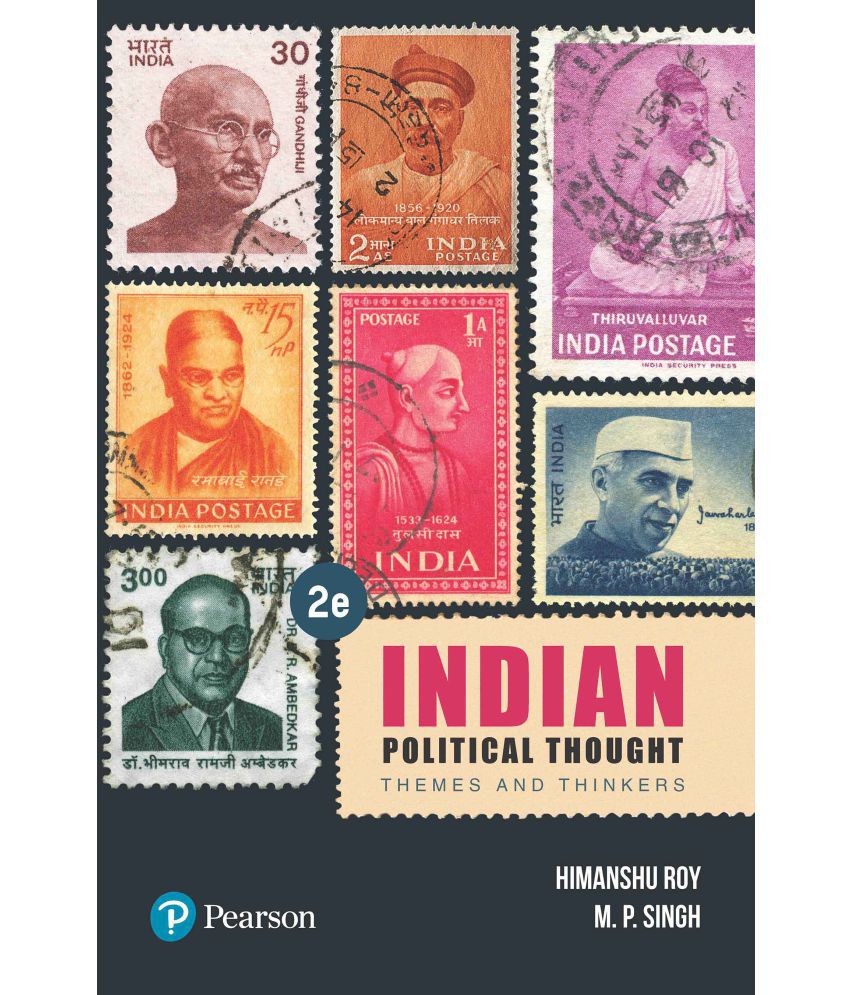Something went wrong. Please refresh the page and try again.
Something went wrong. Please refresh the page and try again.
Notifications can be turned off anytime from settings.
Item(s) Added To cart
Qty.
Something went wrong. Please refresh the page and try again.
Something went wrong. Please refresh the page and try again.
Exchange offer not applicable. New product price is lower than exchange product price
Please check the updated No Cost EMI details on the payment page
Exchange offer is not applicable with this product
Exchange Offer cannot be clubbed with Bajaj Finserv for this product
Product price & seller has been updated as per Bajaj Finserv EMI option
Please apply exchange offer again
Your item has been added to Shortlist.
View AllYour Item has been added to Shopping List
View AllSorry! Indian Political Thought is sold out.


You will be notified when this product will be in stock
| ||||||||||||||
The pre-colonial arena remained largely untouched and disassociated with the mainstream Indian political thought except for Kautilya. In the past half decade or more, new thinkers of mainly pre-colonial years, who were earlier read as part of the discipline of history, literature and theology with their disciplinary matrices has been included with the focus on their political ideas. Buddha, Manu, Zia Barani, Abul Fazal, Kabir are representatives of this emerging trend. In the second edition, we have focused on this genre by incorporating eight new political thinkers of which six are of pre-colonial years whose political social ideas are reflected here in their works. Buddha, Thiruvalluvar, Basava, Kabir, Vemana and Tulsi are part of this endeavour. The other two, Narayan Guru and Tilak, are of late 19th and early 20th century. They were social-political activists who deeply impacted the people of their regions. Many of them are known today
as saint-poets, social reformers or religious gods.
Indian Political Thought: Themes and Thinkers, second edition, discusses the thought process of important Indian political thinkers who range from ancient, medieval, and modern times. New thinkers have been added in this edition, namely, Basava, Thiruvalluvar, Buddha, Tulsidas, Narayana Guru, Vemana, Kabir, and Tilak. The chapters delve into a discussion on important themes, including civil rights, nationalism, democracy, gender and caste, Marxism, socialism, Gandhism, Dhamma, theory of State, ideal polity, and Swaraj.
Many of them are known today as saint-poets, social reformers or religious gods. Among them, despite wide span of time, there are common running themes of justice, governance, and equality for which they lead an emancipatory praxis in the society, were also critical of administration of their times, and suggested measures for better governance.
About the Author:
Mahendra Prasad Singh retired as a Professor and Head of the Department of Political Science and Dean of Faculty of Social Sciences, University of Delhi. He is presently the editor of the Indian Journal of Public Administration, IIPA, New Delhi.
Himanshu Roy is Associate Professor of Political Science, DDU College, University of Delhi. He was Fellow, Nehru Memorial Museum and Library, Teen Murti, New Delhi.
Contents:
1. Dharma/Dhamma: Buddha’s and AÅÂoka’s
2. Kautilya: Theory of State
3. Political Ideas of Thiruvalluvar
4. Manu: Social Laws
5. Exploring the Modern in Medieval: Political Ideas of Basava
6. Zia Barani: Good Sultan and Ideal Polity
7. Political Ideas of Kabir
8. Political Philosophy of Tulsidas
9. Abul Fazl: Governance and Administration
10. Viswadhabhi Rama Vinura Vema: The Social and Political in Vemana’s Thought
11. Rammohan Roy: Civil Rights
12. Jotirao Phule: Social Justice
13. Tilak’s Nationalism and Swaraj
14. Narayana Guru
15. Vivekanand: Cultural Nationalism
16. Aurobindo: Nationalism and Democracy
17. Ramabai: Gender and Caste
18. Gandhi: Swaraj and Satyagraha
19. Jinnah: In Search of Political Power
20. Savarkar: Hindutva and Critique of Caste System
21. Nehru: Ideas of Development
22. M.N. Roy: Twentieth-Century Renaissance
23. Periyar: Radical Liberalism
24. Ambedkar: Constitutionalism and State Structure 25. Ambedkar: Democracy and Economic Theory
26. Lohia: Democracy
27. Jayaprakash Narayan: Marxism, Democratic Socialism and Gandhism
Conclusion
About the Editors and Contributors
The images represent actual product though color of the image and product may slightly differ.
Register now to get updates on promotions and
coupons. Or Download App